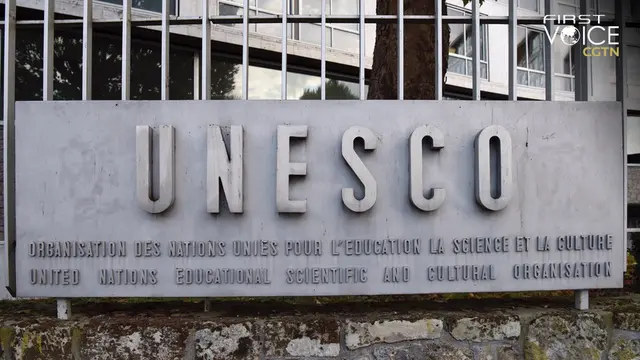The U.S. formally rejoined the United Nations Educational, Scientific and Cultural Organization (UNESCO) in July after a five-year hiatus. U.S. Secretary of State Antony Blinken straightforwardly explained the necessity of the return – U.S. absence in the UN body was letting China write rules on artificial intelligence (AI).
The importance of AI cannot be understated. Accenture's report found that AI could double the economic rates of developed countries by 2035. UNESCO has been playing an important role in global AI communications and formulating related policies. In 2021, the 193 member states adopted the Recommendation on the Ethics of Artificial Intelligence, the very first global standard-setting instrument on the subject, according to the UNESCO website. So far, more than 40 countries are working with UNESCO to develop AI checks and balances based on the Recommendation.
This has raised anxiety in the United States. American officials, on several occasions, have claimed that Washington's UNESCO return can help counter Beijing's growing influences in the global arena. The South China Morning Post said in an article that the U.S. rejoined UNESCO for more advantages in writing global AI rules. "The decision to rejoin UNESCO is just the latest example of the U.S. deciding it can do more to counter China by actively engaging in U.N. institutions than sitting on the sidelines," UN Director for the International Crisis Group Richard Gowan said in an interview with CBS News.
Joining UNESCO is supposed to promote international cooperation and jointly tackle global challenges. Regrettably, the U.S. has taken advantage of the UN body as a tool, wantonly withdrawing from it and then rejoining it, to seek selfish political gains. It is not the first time that the U.S. has acted capriciously on its UNESCO membership. In 1984, Washington quit the agency, accusing it of being mismanaged and corrupt. In 2003, it returned – the move was widely regarded as Washington's attempt to build its image as a promoter of multilateralism after the 9/11 attack.
The U.S. has also withdrawn from a slew of other international bodies and pacts including the World Health Organization, UN Human Rights Council, Iran nuclear deal, Arms Trade Treaty, Intermediate-Range Nuclear Forces Treaty, and the Paris Accord. Stephen Walt, a professor of international relations at Harvard University, once wrote in Foreign Policy that the U.S.'s own willingness to "ignore, evade, or rewrite the rules whenever they seem inconvenient" should not be overlooked.
As the world's superpower, the U.S. regards joining UNESCO as a game. "International organizations are not parks. Countries can't just come and go as they please. The U.S. must not view international organizations as places for geopolitical wrestling and pursue 'global leadership' in the name of the interests of the international community," Chinese Foreign Ministry Spokesperson Wang Wenbin said earlier. Is the U.S. rejoining UNESCO for cooperation or confrontation? The international community is clear about the answer.
(CGTN)
 简体中文
简体中文

